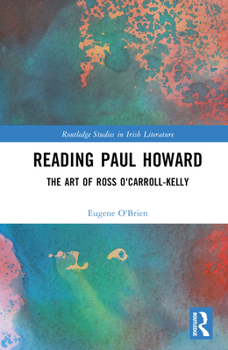Reading Paul Howard: The Art of Ross O'Carroll-Kelly
Reading Paul Howard: The Art of Ross O'Carroll Kelly offers a thorough examination of narrative devices, satirical modes, cultural context and humour in Howard's texts.
The volume argues that his academic critical neglect is due to a classic bifurcation in Irish Studies between high and popular culture, and it will use the thought of Pierre Bourdieu, Sigmund Freud, Mikhail Bakhtin and Jacques Derrida to critique this division, building a theoretical platform from which to examine the significance of Howard's work as an Irish comic and satirical writer. Addressing both the style and the substance of his work, this text locates him in a tradition of Irish satirical writing that dates back to the Gaelic bards, and it includes writers like Swift, Wilde, Flann O'Brien and Joyce. Through textual and contextual analysis, this book makes the case for Howard as a significant and original voice in Irish writing, whose fusion of the three traditional types of satire (Horatian, Juvenalian and Menippean) has created a parallel Ireland that shines a satirical light on its real counterpart. As Freud suggests, humour is a way of accessing aspects of the psyche that normative discourses cannot enunciate, and Howard, through the confessional voice of Ross, offers a fictive truth on 20 years of Irish society, a truth that is not accessed by discourse in the public sphere or by what could be termed literary or high cultural fiction.





